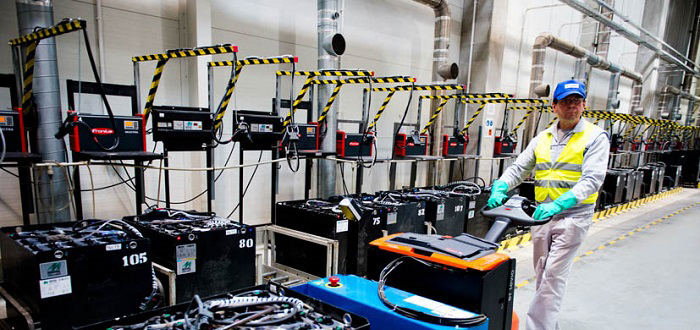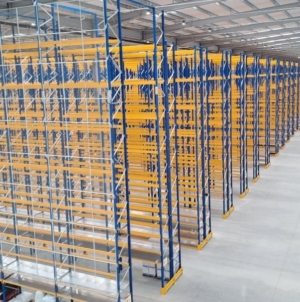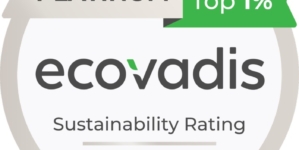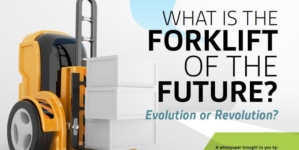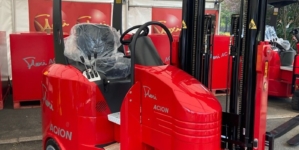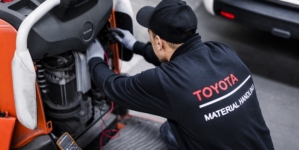-
BLACKOUT TECHNOLOGIES TARGETS TELEMATICS-INTEGRATED MOBILE DEVICE BLOCKING TO COMBAT SMARTPHONE DISTRACTION - 17 hours ago
-
Sparck Technologies awarded Royal designation - March 27, 2025
-
OpenADR Alliance announces first OpenADR 3.0 certified products with EVoke Systems, E.ON Energy and Universal Devices - March 25, 2025
-
Growing fulfilment and contract packer appoints new Managing Director - March 25, 2025
-
When is it time to invest in a WMS? Understanding the key trigger points - March 25, 2025
-
eCapital helps Vantage Recruitment on its journey to financial success - March 24, 2025
-
Hugo Beck Celebrates 70 Years of Packaging Innovation with Open House Events - March 20, 2025
-
PROLOG FULFILMENT SUPPORTS LUNA DAILY’S COMMITMENT TO BETTER BODY CARE FOR ALL WOMEN - March 19, 2025
-
Motion Ventures launches largest-ever maritime tech fund at $100M to meet the industry’s new pace of adoption - March 18, 2025
-
ITD GLOBAL APPOINTS GROUP CHIEF REVENUE OFFICER - March 17, 2025
Charging forklift trucks in a sustainable and energy-efficient manner.
Fronius battery charging technology lowers operating costs at Vestel Poland
Consumer electronics manufacturer, Vestel Poland Sp. z o.o, has modernised the charging technology of its fleet of forklift trucks at its production facility near Wroclaw. A total of 32 trucks are responsible for smooth material flows at the site. Vestel relies on the Selectiva devices from Austrian specialist Fronius to charge the traction batteries of these forklifts as efficiently as possible. These devices use an intelligent Ri charging process, which charges each battery according to its individual needs. This preserves the battery and increases its service life, thus lowering operating costs considerably for Vestel.
Energy efficiency is a hot topic at the moment. This is because modern energy policies and world-wide climate agreements are increasingly shining a spotlight on the importance of the sustainable use of resources and reducing energy consumption, including in intralogistics. Many companies are already turning to electrically operated forklift trucks to transport goods in an energy-efficient and reliable manner. Compared to forklifts with combustion engines, they are not just significantly quieter and more environmentally friendly, but can also lead to a long-term reduction in operating costs. The right charging technology plays a decisive role in operating these essential electric vehicles energy efficiently, which is why Vestel started looking for a more efficient and cost-effective solution for its forklift truck fleet back in 2013.
Founded in the Turkish city of Manisa in 1984, the company has been part of Zorlu Holding since 1994 and is one of the largest OEMs (original equipment manufacturer) and ODMs (original design manufacturer) of household and electrical appliances in the world. The Vestel Group consists of 24 individual businesses, which specialise in production, software and technological developments, and sales and marketing for a variety of products. Vestel exports television sets, washing machines, refrigerators and LED lights to a total of 149 countries under various European and Japanese brands. The company is constantly expanding in terms of its capacity, export activities and market share. In addition to its sites in Turkey, it also has countless locations worldwide, such as in Poland, not far from Wroclaw, where 330 workers produce LCD televisions.
Uncovering and effectively exploiting potential savings
The Polish factory includes a 21,000-square metre warehouse. To efficiently transport all its goods to their intended destinations, Vestel uses 32 electric forklift trucks: ten reach trucks, 16 counterbalanced lift trucks and six pallet trucks. Charging the different traction batteries and the associated power consumption was a significant cost factor. In a bid to reduce operating costs at the factory, Vestel placed its charging technology under the microscope and came to the conclusion that there was enormous untapped savings potential relating to energy consumption and process efficiency. “We used to have massive energy costs from charging our batteries,” recalls Rafal Barcikowski, warehouse manager at Vestel. “The charging process was not always satisfactory. The different batteries were often charged either too much or too little.” Conventional charging processes convert a large proportion of the energy into heat, which is then lost. This lowers efficiency and means an unnecessarily large amount of electricity is consumed. It can also lead to the batteries being significantly overcharged. One of the consequences of this is that the expensive lead batteries reach the end of their useful life prematurely.
Searching for a way to optimise the charging process, the decision-makers at Vestel soon came across Fronius: “We were already aware of Fronius through the trade press,” remembers Barcikowski. “We arranged a meeting with a Fronius expert, who presented us with a detailed proposal for how to tap into the savings potential at our site.” With the battery charging systems from the new Selectiva generation, the Pettenbach-based technology leader from Austria has developed a solution that ensures a gentle and, more importantly, cost-saving charging process, which also significantly extends the service life of the traction batteries. “This new technology, along with Fronius’ experience and expertise, had us convinced right from the start,” says Barcikowski.
Innovative charging technology improves performance and reduces costs
The innovative Ri charging process is at the centre of this new generation of devices from Fronius. It gives users the flexibility to charge batteries with different voltages and capacities – always with an individual characteristic. The devices automatically measure the effective inner resistance (Ri) of the connected battery, which depends on its age, temperature and condition, before adjusting the charging curve accordingly. “That means hardly any overcharging takes place, and the batteries are charged much more gently and economically,” explains Mateusz Kaleja, Technical Consultant at Fronius. With a total efficiency of up to 84 percent, the devices are considerably more efficient than conventional solutions and they also extend the service life of the expensive traction batteries. “Our charging technology therefore reduces the total operating costs or ‘total cost of ownership’ significantly,” explains Kaleja.
At its Polish factory, Vestel has 25 Selectiva devices in use, falling in the 3kW and 8kW power categories.
The user-friendliness of the devices above all was what impressed those responsible right from the start: “The new devices all feature an intelligent automatic start-stop mechanism. All our employees have to do is connect and disconnect the batteries; the device then selects the optimum setting for the characteristic automatically,” Barcikowski explains. Another advantage is the LED strip on the battery charging system that lets users know immediately which of the connected batteries are fully charged and cool enough to use. The result is an even utilisation of the forklifts and batteries. “This means we can increase the service life of the batteries in the long run,” Barcikowski adds. “The battery charging systems are also completely reliable and we never have any problems. Operating faults and defects caused by incorrect charging have now become a thing of the past for us.”
By updating its charging technology, Vestel has succeeded in significantly reducing the operating costs of its electric forklift trucks. The change also represents a further step towards energy efficiency and sustainability. Vestel is also extremely pleased with the working relationship they have with the Austrian manufacturer: “Right from the start, Fronius impressed us with their solutions and, above all, their technical expertise,” Rafal Barcikowski summarises. “If we had to update our battery charging technology all over again, we’d go back to Fronius in a second.”



























